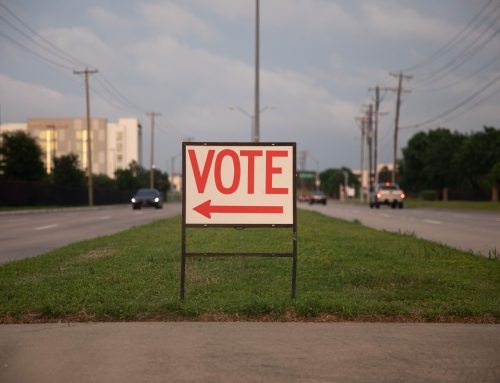We have a long-standing rule in our house. After playing a board game, whether it’s checkers, Monopoly, Yahtzee, gin rummy, Uno or the Game of Life, the winner has to clean up. Why? Because it’s hard to pick up the pieces after you lose.
That’s especially true when it’s the actual game of life.
When I narrowly lost the 2016 Dallas ISD District 2 school board race, I accepted the results with grace and was outwardly positive at our election watch party. I not only held it together after my concession speech, I had a really good time as I enjoyed the company of family, friends and supporters.
Later that night, in the privacy of my home, I sat on the tile floor of our master bathroom and cried. It wasn’t solely from the disappointing election results. I was exhausted. Our nine-person cabinet hadn’t slept a full night or seen our families in four months, more than 200 people volunteered their time and talent and people across the city donated money to our campaign… only to see me fail.
In that moment and the days that followed, it was hard to think of myself as anything other than the person who lost. I grew up in a house where the bar was set so high, it was perpetually unreachable. This was no different. I should have made more phone calls, knocked on more doors, said something I didn’t or not have said something I did.
At the end of the day, the outcome of every election dictates there is a winner and a loser. It’s hard enough picking up the pieces after a long, strenuous battle. What’s even more difficult is answering the question, “What now?”
For the losing candidate, “What now?” can be anything from re-entering private life, never to be seen again, or continuing on the path and being even more engaged than before.
Re-entry is hard after the intensity of 18-hour days filled with candidate forums, interviews for articles, block walking, strategizing and door knocking. In my case, after I picked myself up from the floor after my loss, my “What now?” was going on a two-week vacation with my family and disconnecting from my laptop, phone and society. I had to clear my mind and enjoy the simplicity of doing little other than hanging out with my husband and kids.
For anyone, it becomes easier to self-reflect once all the noise inside our head dissipates, and it was no different for me. In the months after the final results were called, I came to two conclusions.
I needed to remember why I had wanted to run in the first place.
I had to go back to our campaign’s core principle: running our race based on the values we teach our children – truth, integrity, teamwork, quality work, being kind, working hard, having fun and…
Resilience.
Resilience is highly overrated when all you want to do is sit in a dark corner of your bedroom and play Words with Friends on your phone. That’s why there is great weight should the victor ask his opponent to help collect the spoils of war. It’s more than displaying humility after winning, it’s showing integrity, reaching out and saying to one’s adversary, “I understand why you ran, and I listened to what you had to say.” That statement alone should be required after every election. While they will not agree on everything, they may find some common ground.
It seems nearly impossible to have this sort of outreach in our present, hyperpartisan political climate. The grace of Sen. John McCain’s concession speech in 2008 seems a billion election cycles ago. But closer to home, it’s more than possible.
One of the most rewarding aspects about living in East Dallas is witnessing our neighbors step up to run for office, from nonpartisan municipal races all the way to the federal level. Not all end up with the “honorable” title, but they are still our neighbors. This post-election 2020 season, I hope there is the much-needed holding out and acceptance of the olive branch because there is always more work and heavy lifting to be done.
Two months after I lost my 2016 school board bid, my opponent asked me to coffee. I accepted the offer of peace, armed with a clear mind and resilience. The conversation wasn’t easy, nor was it exceptionally pleasant, but it was a start. I decided to meet with others I’d met along the way and chose to stay resolute — committing myself to becoming even more involved in public education advocacy than before. It all worked out, and most days, I actually feel like I’m the big winner.
Communities, counties and countries become fractured after each election cycle – sadly more today than ever before. Races get ugly, and we all get passionate about whom we have chosen to support. Unfortunately, that passion often translates into continued animosity for the other side. When opposing candidates exhibit the willingness and ability to work together, it is not only great role-modeling for our kids, it results in better outcomes for all.





